
2024 Climate Action Leadership Awards
We are thrilled to announce the winners of the 2024 GCAP Leadership Award. These climate leaders are leading the way in accelerating climate action through innovative and inclusive approaches that result in driving impact in their countries and communities. Read on to learn more about the six award winners.
Climate Change Planning, Implementation, and Financing Innovation
Esther Muringo Wang’ombe, Director Renewable Energy, Ministry of Energy and Petroleum, Kenya
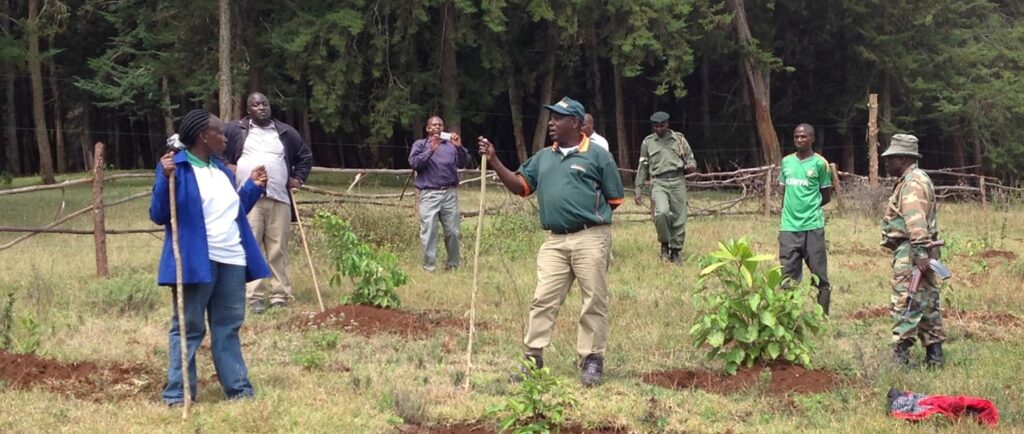
Esther has successfully led the Kipsaina Education and Environment Partnership team in rehabilitating degraded forests in Kenya’s major water towers. Their work focuses on:
- Community Transformation:
- Tree Planting on Farms: The initiative helps local farmers grow trees for climate change mitigation, food, economic gain, and carbon credit benefits.
- Economic and Employment Benefits: By employing local community-based groups (CFAs) for planting and maintaining trees, the program boosts local incomes and fosters a sense of community ownership.
- Partnership and Implementation:
- Collaborations: The project collaborates with Kenya Forests Service (KFS) and county governments for selecting and supervising rehabilitation areas. Local nurseries provide seedlings, and local CFAs are hired for the work.
- Shift from Contractors: Initially, contractors were hired, but switching to local labor enhanced community involvement and success.
- Rehabilitation and Impact:
- Scale: Over 1,000 hectares of degraded water towers have been rehabilitated or are under rehabilitation.
- Fruit Trees: Besides woodlots for firewood, fruit trees are promoted for better community nutrition and income, as they are less likely to be cut down.
- Documentation and Replication:
- Training and Sharing: The initiative is documented through video documentaries, aiding in training and replication efforts.
- Governance and Funding:
- Coordination: The project is managed with input from national energy stakeholders, the Ministry of Energy and Petroleum, Kenya Forests Service, and local governments.
- Funding and Oversight: The Ministry funds the project and agrees on the work plan, while KFS and local governments oversee and manage the implementation.
- Climate and Social Impact:
- Climate Change Mitigation: The initiative aims to increase sustainable water flow in rivers, improve health nutrition, and provide economic gains through tree products and carbon credits.
- Social Responsibility: Though not a core business of the energy ministry, tree planting is pursued as a social responsibility to combat climate change and align with global and national reforestation goals.
This model demonstrates effective climate action and community engagement, showcasing its potential for replication in other regions.
Vincent Nikiema, President, SOS Énergie Burkina, Bukina Faso
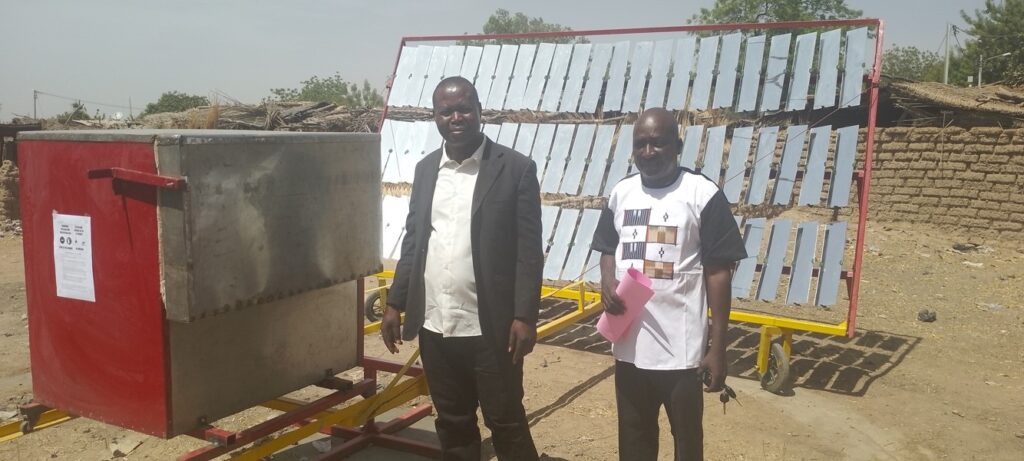
Training project in innovative agroecological techniques for 150 women from Goghin, Burkina Faso. This project formerly consisted of training women in agricultural biofertilizer and biopesticide production techniques and setting up a self-managed market garden of two and a half hectares. These projects combine both the valorization of biomass resources and raising awareness among populations to raise awareness of climate change. The general objective is to contribute to adaptation to climate change and the mitigation of its effects through the commitment of all.
Mr. Vincent NIKIEMA, president of the SOS Énergie Burkina association, provides several innovative solutions that can be cited among others:
- Solar bakery program managed by women’s groups with the use of solar ovens/concentrators.
- Semi-artisanal green charcoal production units with the aim of combating deforestation in Burkina Faso
- Market gardens with innovative climate-smart irrigation solutions. According to an adage, “Innovation is transforming an idea into money”! The ultimate goal of the project leader Vincent NIKIEMA is therefore to integrate his innovation for the benefit of the community by involving all the members of the association, at a time when the ecosystem is dynamic and changing. In short, the search for long-term efficiency.
Since the creation of the association, Mr. Vincent NIKIEMA’s fight has been to combat climate change by raising awareness among the population. He also carries out concrete actions on the ground, for example the reforestation camps and the projects mentioned above.
Mr. Vincent NIKIEMA is the winner of the 2010 Seed Initiatives Award for his biomass briquette production project. He is an ambassador for Energy Globe and country correspondent for the Francophone Africa Climate Initiatives (ICAF).
Just Transition
Carolina Martínez Cuéllar, Manager of Bogota’s public transport operator, Operadora Distrital de Transporte “La Rolita”
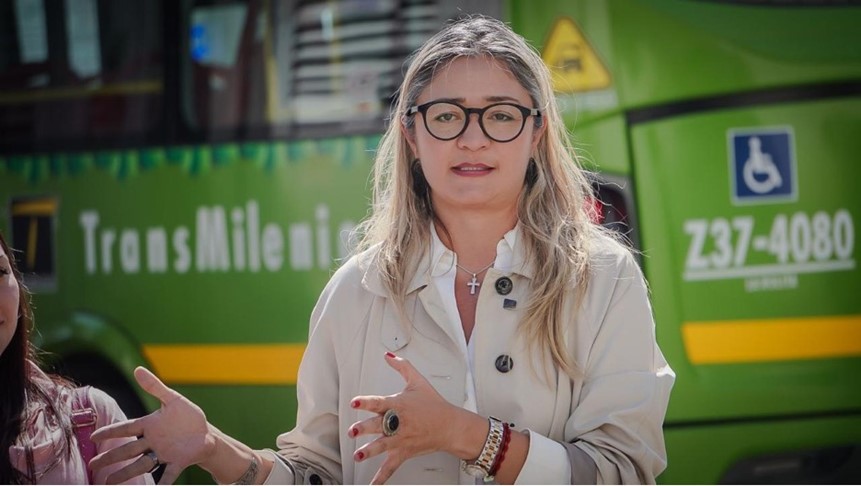
Carolina Martínez Cuéllar is an Industrial Engineer from Universidad América and holds a Master’s Degree in Strategic Management from Universidad de La Sabana. She has 23 years of experience, leading work teams with more than 5,000 workers in the mass passenger transportation sector.
She currently holds the position of General Manager of Rolita, the first District Public Transportation Operator, from which she leads the transformation of the mobility sector, with the use of clean energy multimodal transportation.
She is the mother of Ricardo Frasser, a 12-year old teenager to whom she dedicates quality time, in the midst of the great challenge of being a mother and running a company with more than 700 employees and three lines of business that require all her energy and dedication.
She has helped this company make significant social and environmental impacts since its inception:
- Social Impact:
- Employment: Created 732 jobs in Bogotá, with 52% for women and 48% for men. The workforce includes 472 bus operators (62% women), 138 young people (18-28 years), 49 people over 50, 41 migrants, and 43% are single mothers or fathers.
- Education and Training: Provided educational opportunities, including 18 high school graduates, 70 pre-registered transportation management technicians, and 30 workers trained in management skills.
- Environmental Impact:
- CO2 Reduction: Operates a fleet of 195 electric buses, eliminating 2 million tons of CO2 emissions.
- Water and Waste Management: Recycles 1,290 liters of water and collects 30 m³ of rainwater. Engages in recycling processes including renewing 82 tires, treating 455 gallons of used oil, and recycling 3,579 kg of solid waste.
- Urban Gardens: Supports 72 urban vegetable gardens in community and employee homes.
- Sustainability Initiatives:
- Electric Bus Fleet: Promotes sustainable mobility and reduced emissions.
- Charging Network: Operates 15 fast-charging electric chargers at six strategic locations in Bogotá.
- Institutional Strategy:
- Corporate Responsibility: Focuses on social impact (SDG 3, 5, 8, 11), economic impact (SDG 9, 10, 16, 17), and environmental impact (SDG 6, 7, 12, 13).
- Compliance: Adheres to national and district regulations, including Decree 497 of 2023 and the Economic, Social, Environmental, and Public Works Development Plan of the Capital District.
- Inclusive Participation:
- Diverse Workforce: Actively includes youth, seniors, migrants, ethnic groups, and the LGBTI community.
- Community Engagement: Conducts awareness programs to promote environmental and social responsibility and improves public transportation affinity.
La Rolita, led by Carolina Martínez Cuellar, demonstrates its commitment to economic, social, and environmental sustainability through innovative practices and inclusive employment.
Karunarathnalage Lilan Udayanga Dayananda, CEO & Managing Director, Elzian Agro, Sri Lanka
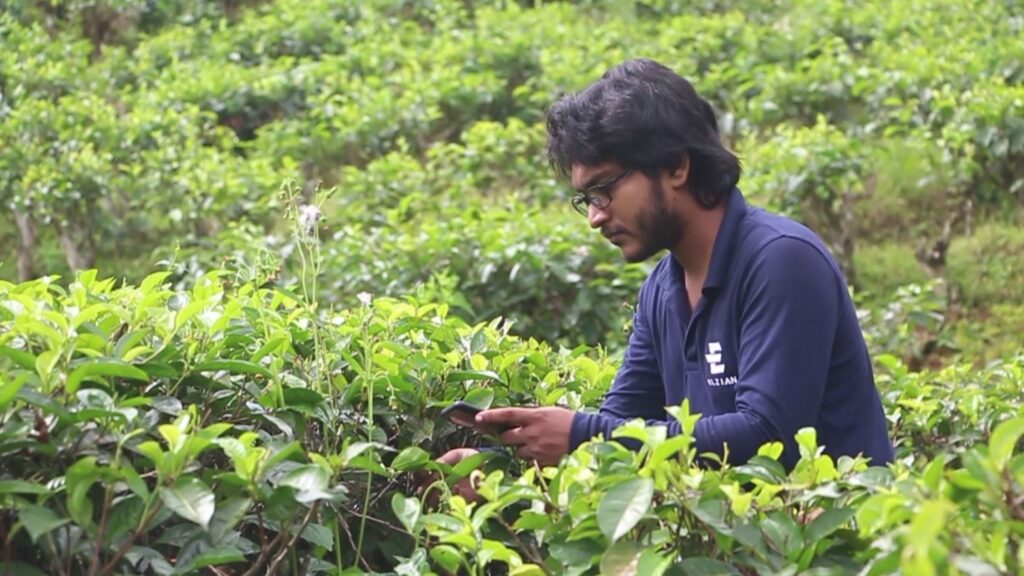
Lilan Dayananda is a youth social-tech entrepreneur and the Managing Director and CEO of Elzian Agro. He is dedicated to helping farmers improve cost and energy efficiency while optimizing crop yields. His remarkable contributions earned him a spot on Forbes Magazine’s “30 Under 30” list in the social impact category. He was also recognized as one of the top meaningful business founders by Ernst & Young (EY) and Hogan Lovells Global Law Firms, in collaboration with the Meaningful Business Community. Driven by a passion for meaningful impact, Lilan remains committed to fostering positive change worldwide.
Through Elzian Agro, which offers precision agriculture solutions using the and other advanced technologies to small-scale farmers, he works with farmers to help them improve farming practices, enhancing climate resilience, and promoting social and economic benefits. Key Contributions include:
- Technology Integration:
- Internet of Things -Based Solutions: Implements real-time monitoring and automation to optimize water usage, increasing crop yields by over 7% and reducing irrigation costs by 15-20%.
- Biofertilizers: Uses Azolla biofertilizer to replace synthetic fertilizers, reducing nitrous oxide emissions.
- Advanced Technologies: Employs artificial intelligence, machine learning, drones, GIS, and blockchain to enhance farming efficiency, predict pests, manage resources, and ensure transaction transparency.
- Impact on Farmers:
- Empowerment and Inclusivity: Provides training and technology access to marginalized farmers, including women and youth, fostering inclusive development.
- Climate Resilience: Offers real-time environmental data for informed decision-making, aiding adaptation to climate variability.
- Social and Economic Benefits: Improves health and economic outcomes by reducing energy costs and supporting sustainable farming practices.
- Implementation and Engagement:
- Conducts hands-on demonstrations to showcase the benefits of technology, attracting investment and supporting climate action.
- Comprehensive training through mobile and web applications to ensure effective technology use by small-scale farmers.
- Collaborates with local organizations and stakeholders to ensure smooth implementation and community acceptance.
- Alignment with National Goals:
- Supports Sri Lanka’s NDCs to reduce GHG emissions and enhance climate resilience.
- Contributes to SDG 7 by promoting energy efficiency and sustainable agricultural practices.
- Broader Impact
- Works with over 100,000 farmers in Sri Lanka and 22 other countries, influencing local farming communities and urban agriculture.
- Partners with organizations like UNFCCC and UNEP to drive innovation and advocate for sustainable practices.
- Social Impact:
- Actively engages with marginalized communities, ensuring diverse representation and addressing social inequalities.
- Supports low-income farmers transitioning to climate-smart practices, creating new economic opportunities and improving sustainability.
Lilan Dayananda’s initiatives with Elzian Agro demonstrate a holistic approach to agriculture, integrating technology with social and environmental goals to enhance farming practices, promote climate resilience, and support marginalized communities.
Youth Climate Action
Muhammad Hammad Abbasi, Founder, VGreenO & Co-Lead, Local Conference of Youth, Pakistan
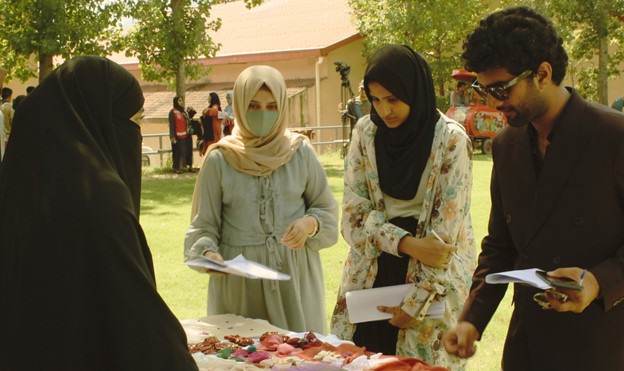
Hammad Abassi has made outstanding contributions to youth empowerment and innovative environmental solutions mainly through his organization VGreenO. Hammad has co-led the Pakistan Local Conference of Youth (LCOY), a pioneering initiative that engaged over 10,000 youth climate activists directly across Pakistan. This initiative, combined with other projects such as workshops, sessions, and digital outreach has extended the impact to over 20,000 young people across Pakistan. His leadership has driven significant progress in addressing environmental challenges, such as plastic pollution, and has influenced national climate policies. His key achievements include:
- Inclusive Leadership: Hammad introduced a groundbreaking approach by integrating indigenous people, intersex, transgender individuals, children, women, and differently-abled individuals into the climate action process. This has expanded the scope of climate dialogue and fostered a more inclusive approach to environmental challenges.
- Innovative Methods: His initiatives emphasize diverse representation and systemic impact, setting a new standard for equitable climate action. By engaging directly with a broad spectrum of climate activists, he has created a replicable model for community-based and youth-led advocacy.
- GCAP Principles: Hammad’s work aligns with GCAP principles by combining environmental, social, and economic goals. His efforts not only address greenhouse gas reduction but also promote social equity, integrating marginalized groups into climate initiatives and ensuring a holistic approach to sustainability.
- Multi-Level Impact:
- At the national level, Hammad’s leadership in LCOY Pakistan has shaped climate policies and youth engagement strategies for COP29.
- At the provincial level, he has organized climate action events across all regions, mobilizing thousands of activists.
- At the municipal level, his VGreenO projects focus on reducing plastic pollution and raising environmental awareness. His collaborations with NGOs, educational institutions, and local leaders further enhance the impact of his work.
Hammad Abbasi has an innovative and inclusive approach to climate leadership, combined with a strong commitment to youth empowerment and effective climate solutions.
Sebastian Habeger Pilla Quinchiguango, Educator, Youth Leader and Advocate for Sustainable Development in the Galápagos Islands, Ecuador

Sebastian Habeger Pilla Quinchiguango is a passionate educator and cultural manager committed to mobilizing youth in the iconic Galápagos archipelago. As an ambassador for the Sustainable Development Goals (SDGs) in his region, he has been a tireless advocate for implementing key targets of the 2030 Agenda, promoting conservation and sustainable development. His belief in the transformative power of education has guided his leadership in numerous processes focused on Education for Sustainable Development (ESD).
Sebastian, a proud member of the Otavalo and Salasaca indigenous communities, resides in the Galápagos Islands and chairs the Youth Advisory Council. His journey as a community development advocate began at the age of 19 when he took on the role of youth representative for the archipelago. Since then, he has spearheaded projects that merge science, research, and innovation, addressing social, cultural, and environmental challenges in his community.
The Galápagos, renowned worldwide as the place where Charles Darwin’s theory of evolution originated, is also a global benchmark for sustainability. This context has shaped Sebastian as an innate leader who promotes conservation and a deep understanding of the environment. “To protect the place where you live, you must first know it,” says Sebastian, who has been a bridge between the island’s youth and protected areas, fostering synergies with key institutional actors to work in favor of the conservation of their environment, such as the Galápagos Marine Reserve and its biodiversity.
Innovation in Climate Action
Sebastian’s educational approach is based on hands-on experiences, such as experiential workshops and field trips, where youth actively learn about their environment and collaborate on conservation initiatives. “Learning through experience” is key. Under the U Theory methodology, Sebastian has led innovative processes and participated in international training on climate change and global event simulations. However, he notes that living in a remote region presents challenges in accessing opportunities for the youth of the Galápagos.
Among his most notable achievements are:
- Collaborating in the prioritization of the SDGs for the Galápagos Islands.
- Leading the first student participation program integrating the SDGs into the educational curriculum, endorsed by the Ministry of Education of Ecuador.
- Acting as a consultant for youth actions, organizing leadership workshops, coastal clean-ups, and community empowerment activities.
- Working to consolidate the youth network “Galápagos Young People,” which promotes community leadership among island youth.
Sebastian has taken the voice of the Galápagos youth to international stages, such as serving as an ambassador at One Young World 2023 and at the Regional Conference of Youth (RCOY) in Bogotá. Additionally, he has been selected to participate in the World Youth Festival in Russia in 2024. Throughout his career, he has collaborated with major state institutions and NGOs, including the Galápagos National Park, UNESCO, the University of Cambridge, and the Ministry of Education. His fight for social justice and conservation is intertwined with education, science, and culture.
Currently, Sebastian works at the ECOS Foundation as an Experiential Educator, leading youth actions focused on environmental care. In the Galápagos Islands, when talking about youth leadership in such an emblematic region, the name of Sebastián Pilla is always mentioned. “The power is in the youth, the inspiration is in their action.”
Sebastian extends his deepest gratitude to his community, which not only saw him grow but inspired him to dream big and act with purpose. Every step he has taken as a leader reflects the support and wisdom he has received. On this journey, the CENDA Foundation, the Foundation for a Change for Life, the ECOS Foundation, the unwavering support of Diego Bermeo, and other actors have been fundamental. This recognition is not only for him but for all those who believe in the power of youth to transform the world.
